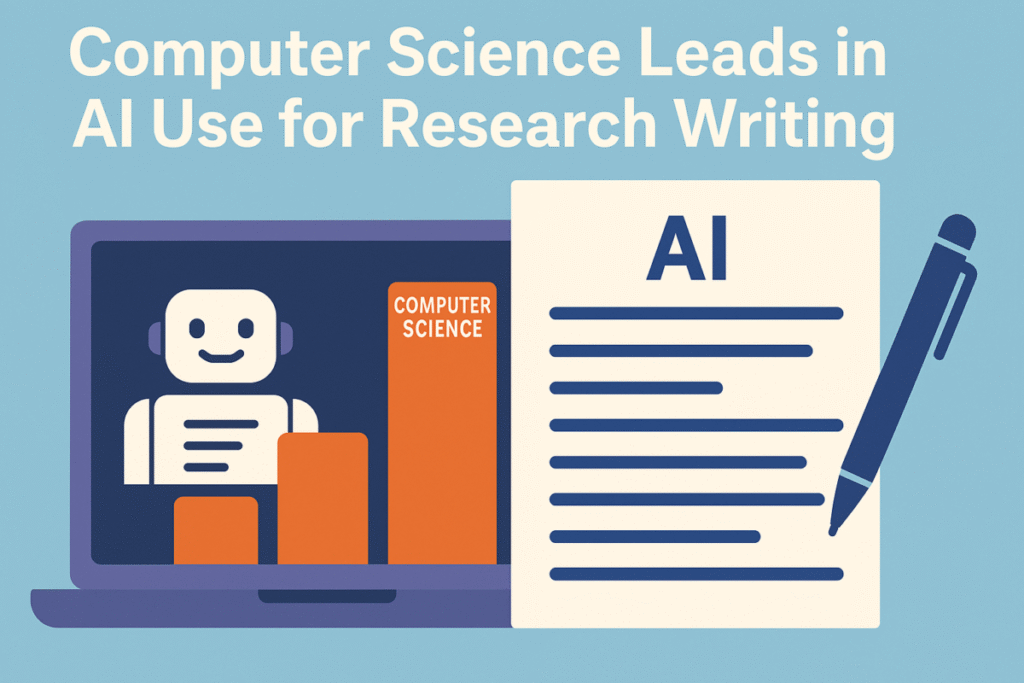📚 How AI Tools Like ChatGPT Are Changing Research Writing
A new study by Stanford University and other US researchers shows that AI tools like ChatGPT are now widely used by scientists to help write their research papers. After analyzing over 1.1 million papers published between 2020 and 2024, the study found that computer science papers had the highest growth in AI use, reaching up to 22%.
This trend highlights how large language models (LLMs) are transforming how researchers write, publish, and share knowledge.

Read Also:
📊 What the Study Discovered
The research team examined academic content from websites like arXiv, bioRxiv, and journals published by Nature. They looked for specific words and styles that typically come from AI-generated text.
Key findings included:
- Computer science papers had the highest use of AI tools (up to 22%).
- Shorter papers and preprints were more likely to involve AI writing assistance.
- Authors from non-English-speaking countries—especially China and parts of Europe—relied more on AI tools like ChatGPT to improve English clarity.
- Math papers and those published in Nature journals showed much less AI usage.
These results suggest that AI support is becoming more common in early-stage academic writing and technical fields.
🧾 Most Researchers Don’t Disclose AI Use
One striking insight from the study was the lack of transparency about using AI. In a detailed review of 200 computer science papers from February 2024, only two authors admitted to using AI tools in their writing process.
This raises ethical concerns about academic honesty and points to the need for clear disclosure rules in academic publishing. Experts believe that current journal guidelines are not strict or clear enough when it comes to AI-assisted writing.
⏱ Why Scientists Are Turning to AI Tools
Researchers face increasing pressure to publish more, and faster. Tools like ChatGPT, Gemini, and other AI writing assistants are helping them:
- Write and edit papers more efficiently
- Fix grammar and improve sentence structure
- Translate ideas into fluent English
- Simplify complex concepts for broader audiences
Another study published in the journal Science found that 13% of research abstracts in 2024 contained signs of AI-generated text. This trend reflects the growing reliance on AI in the academic world.
🤖 The Future of AI in Scientific Research
As AI tools continue to improve, they will likely become standard in the research writing process. However, questions remain about fairness, originality, and authorship. Academic institutions and journals may soon introduce clear rules and policies about when and how researchers should disclose AI usage.
For now, AI in research writing seems here to stay—especially in fast-moving fields like computer science and engineering.
